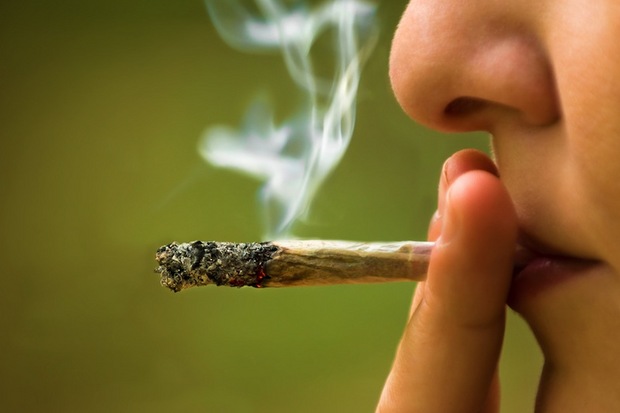Secondhand Pot Smoke Could Harm Heart, Too

CHICAGO— Inhaling secondhand marijuana smoke may damage the blood vessels just like breathing in secondhand cigarette smoke does, a new study in rats suggests.
"Smoke from burnt plant material has thousands of chemicals. And many of these chemicals are toxic," said Matthew Springer, a co-author of the new study and an associate professor of Medicine at the University of California, San Francisco.
"The problem is that the public has figured this out for cigarettes, but they haven't necessarily made the extension to marijuana secondhand smoke. A lot of people actively avoid being exposed to cigarette secondhand smoke, and they don't mind being exposed to marijuana secondhand smoke," Springer said.
Previous research has shown that secondhand smoke from cigarettes impairs the ability of vessels to open up when increased blood flow to a region is needed. This impairment is temporary, but people who are exposed to smoke over a long time may develop a long-term impairment in their blood vessel function, which could lead to heart disease, the researchers said.
Now, the new study shows that secondhand marijuana smoke has an effect on the blood vessels that is comparable to that of tobacco smoke, at least in rats, according to the findings that will be presented here today (Nov. 17) at the American Heart Association meeting. [Rates of Smoking and Growing Marijuana in US States (Maps)]
Still, more research is needed to examine whether the effects of marijuana smoke are the same in people, the researchers said.
In the study, the researchers exposed rats to marijuana secondhand smoke coming from a smoking machine that scientists use in studying cigarettes. An ultrasound machine showed the animals' arteries, and researchers measured how well the vessels functioned.
Sign up for the Live Science daily newsletter now
Get the world’s most fascinating discoveries delivered straight to your inbox.
After 30 minutes of exposure, the rats' blood vessel function dropped 70 percent, the results showed.
Moreover, the effect of the marijuana smoke on the rats' vessels lasted longer than expected, the researchers said.
"When we study tobacco smoke, that impairment typically resolves within half an hour. But when we looked half an hour later after the impairment from marijuana smoke, it did not get any better," Springer said. The researchers didn't look at how long it took for the rats' blood vessel function to return to normal.
The researchers repeated their experiment using marijuana that contained no tetrahydrocannabinol (THC) — the main active ingredient in marijuana — and observed similar results. This suggests that THC isn't responsible for the effect. Similarly, the study shows that nicotine is not required for smoke to affect blood vessel function, the researchers said.
Springer emphasized that the findings are about marijuana that is smoked, and do not extend to other methods of consuming the drug, such as digesting or vaporizing.
It is difficult to know how much exposure is needed to turn the temporary effects of smoke into a long-term condition, Springer said. Living with a smoking person likely means dangerous levels of smoke exposure, but being exposed to marijuana smoke only once in a while may mean facing only temporary impairment, he said.
"The conclusion is that smoke is smoke," and people should avoid exposure to secondhand smoke whether the source is tobacco or marijuana, he said.
Email Bahar Gholipour. Follow Live Science @livescience, Facebook & Google+. Originally published on Live Science.











